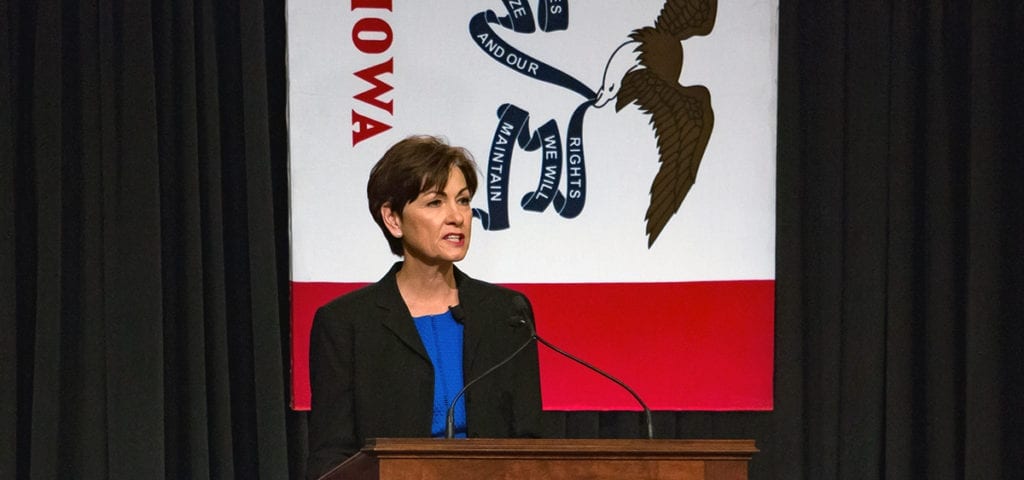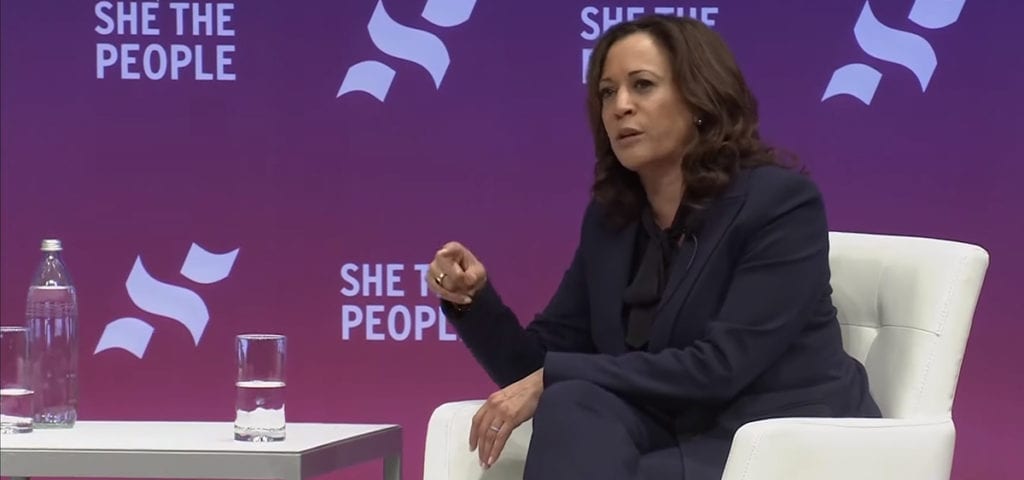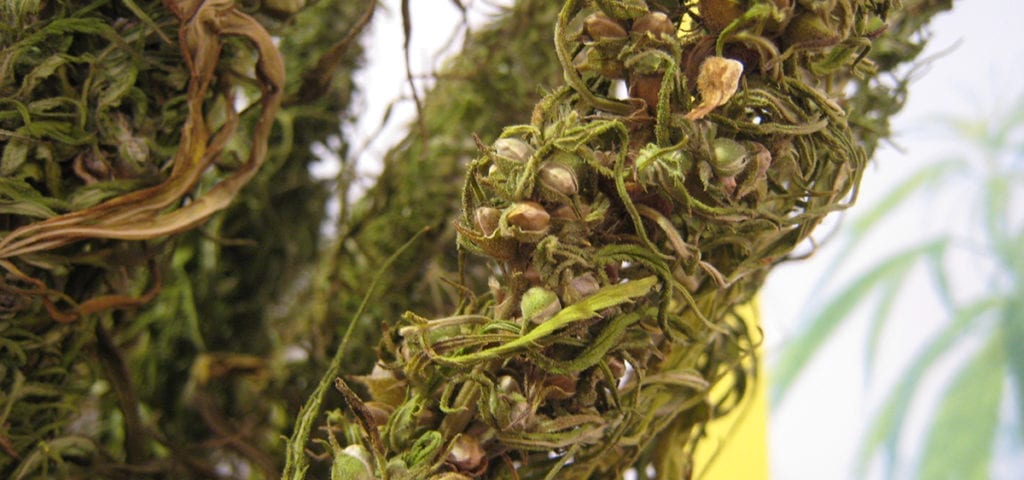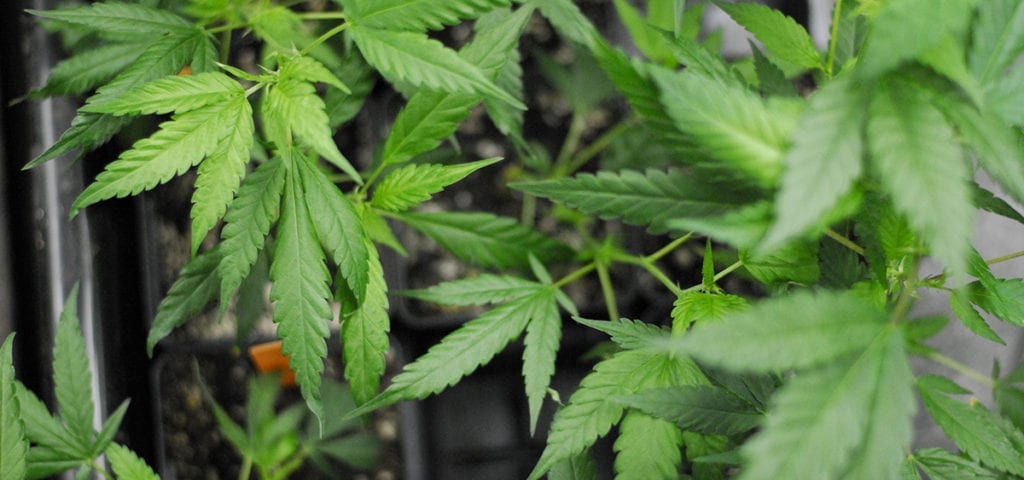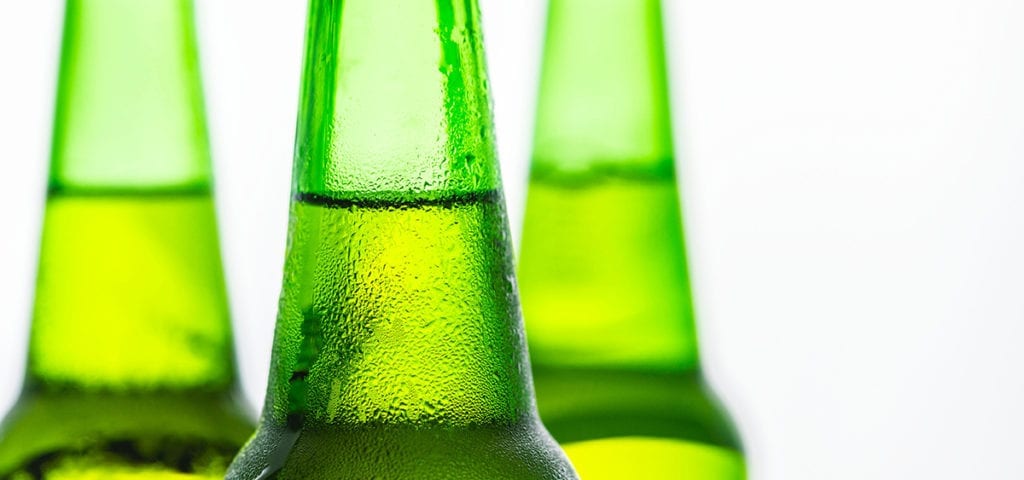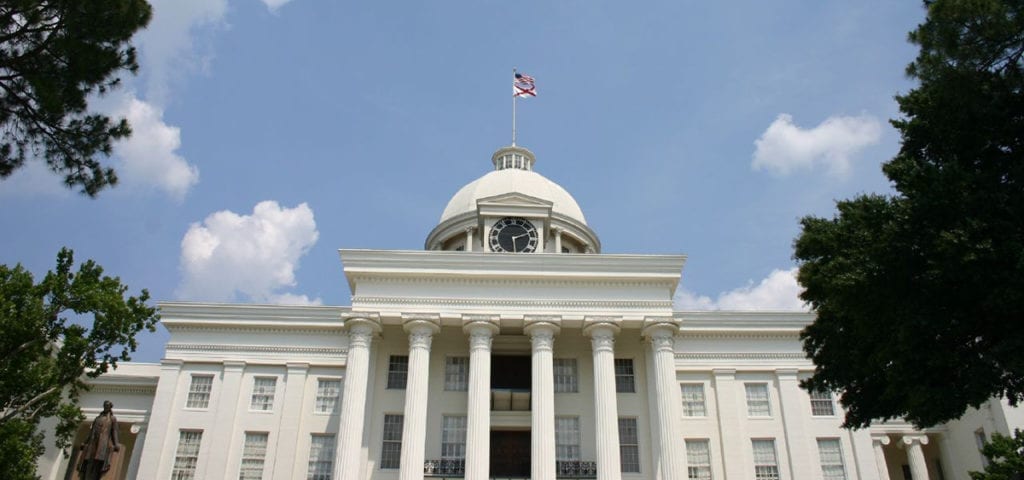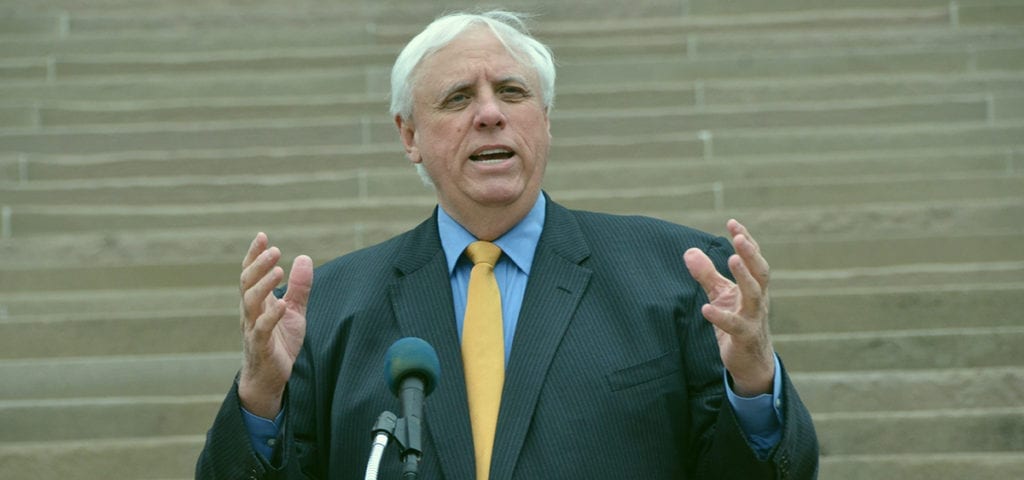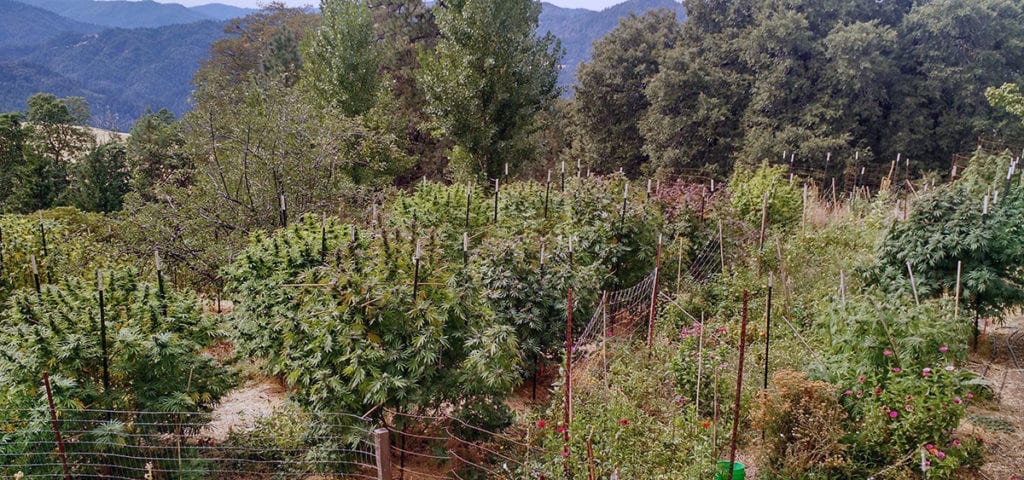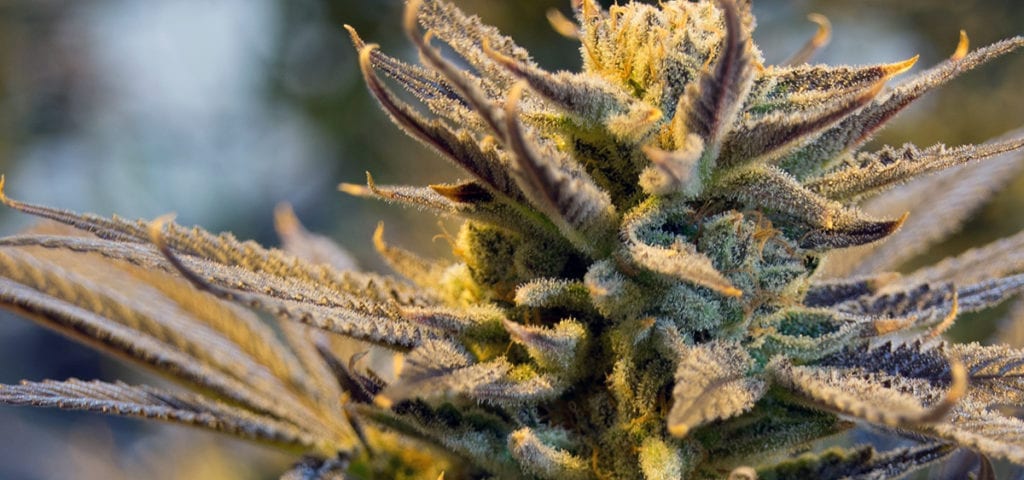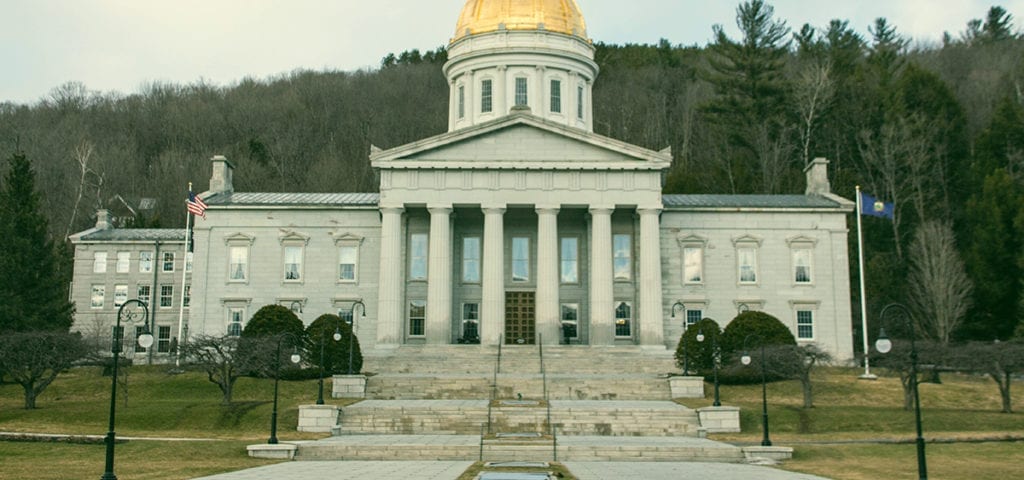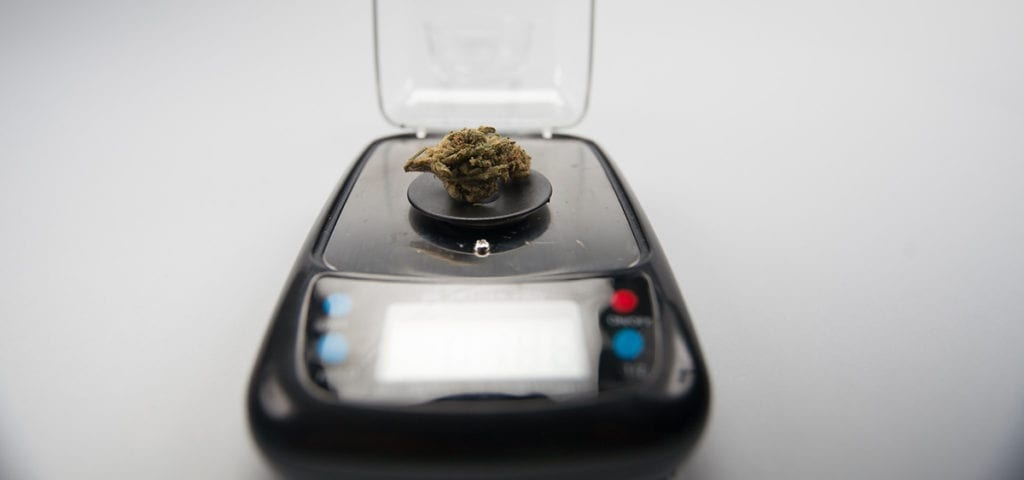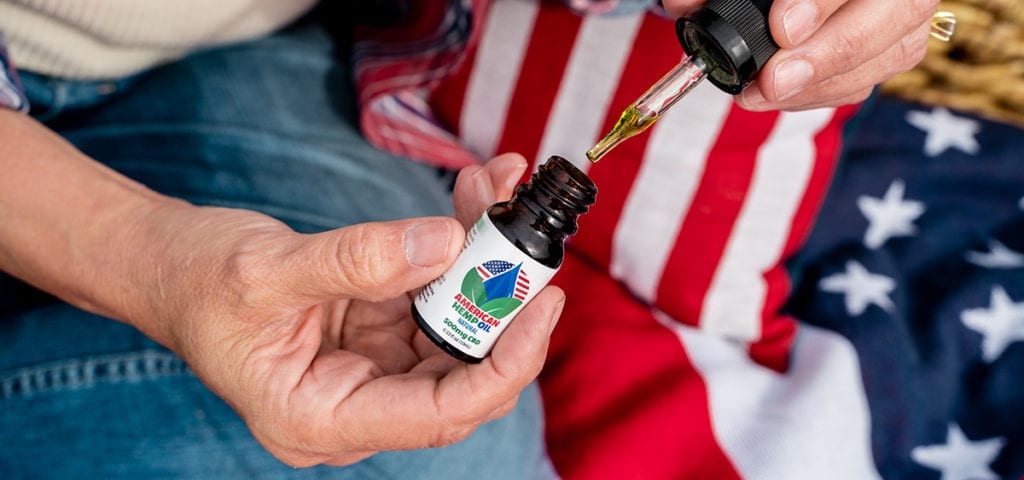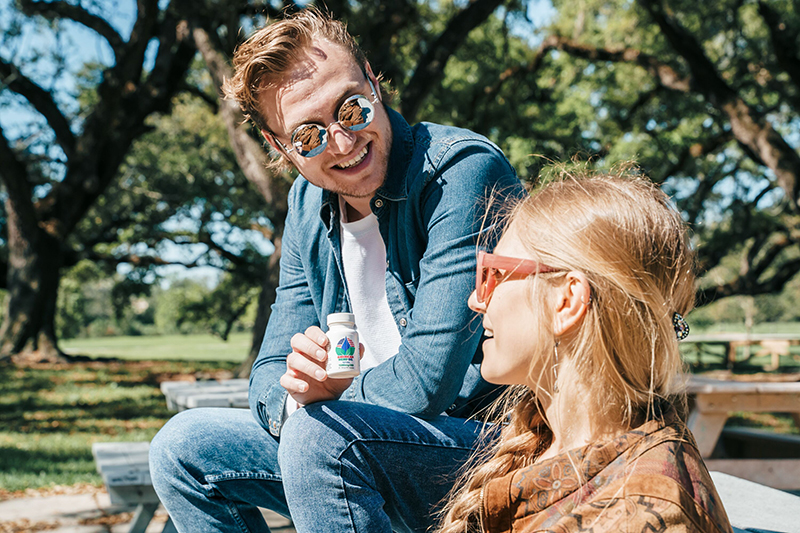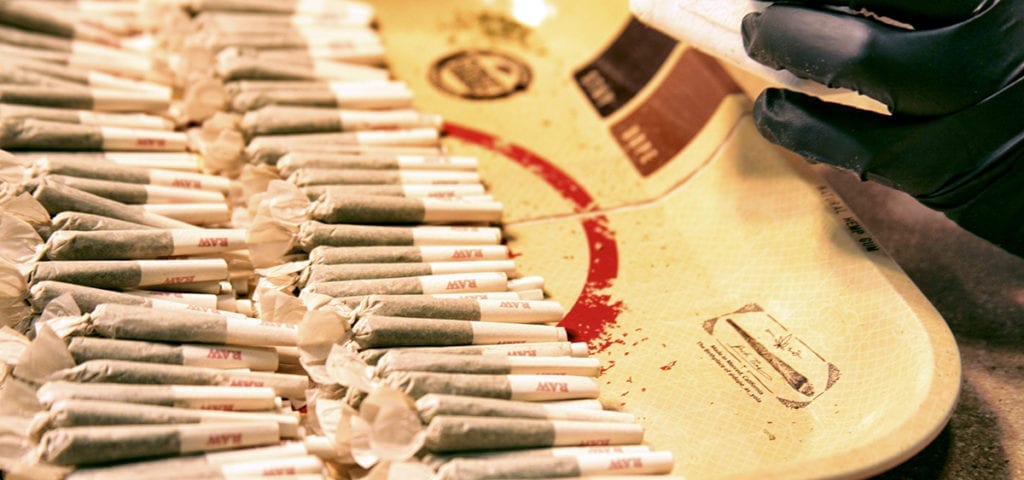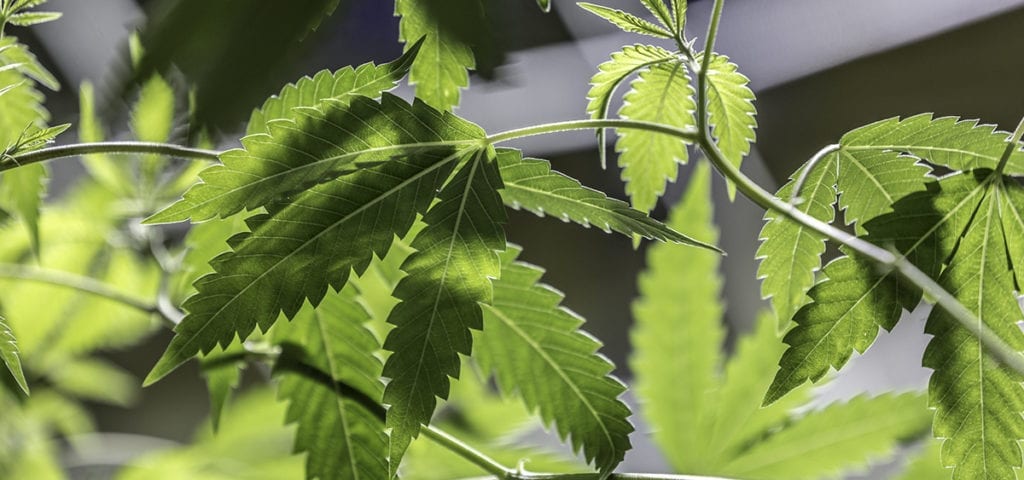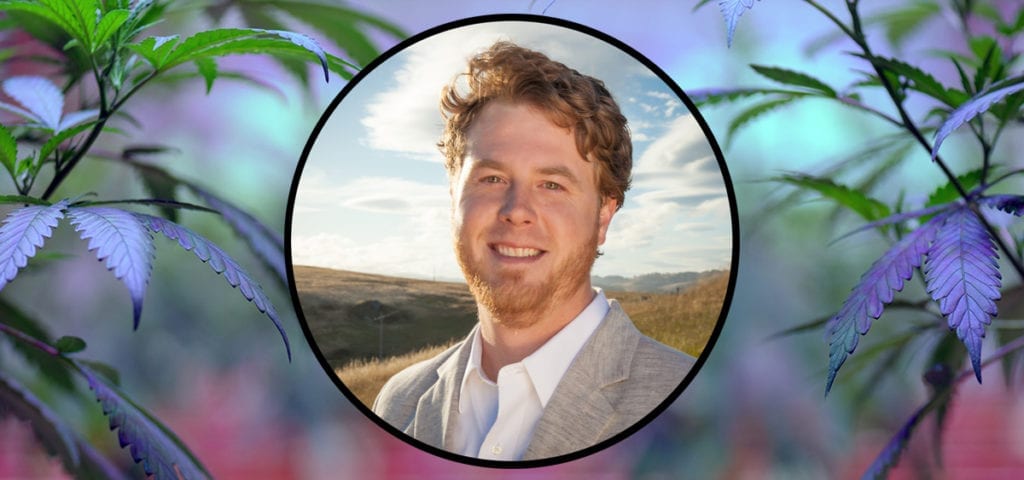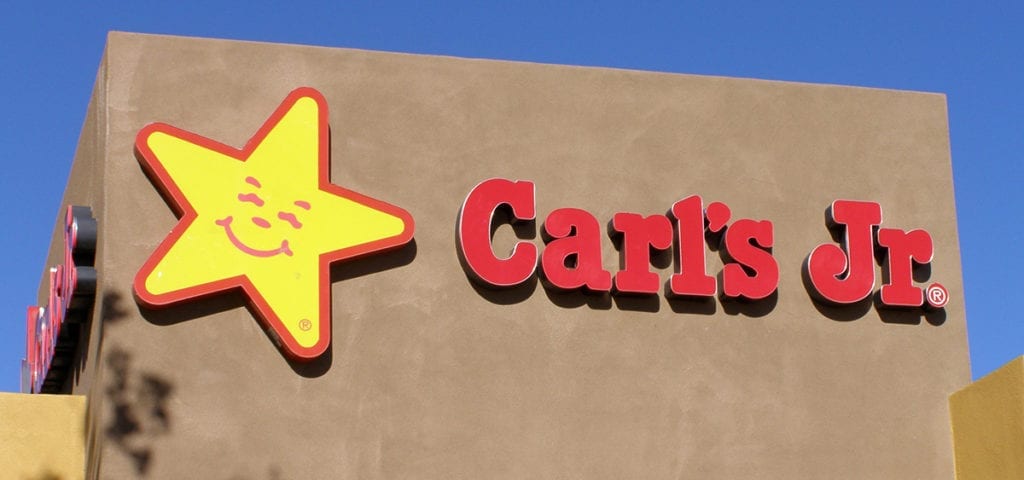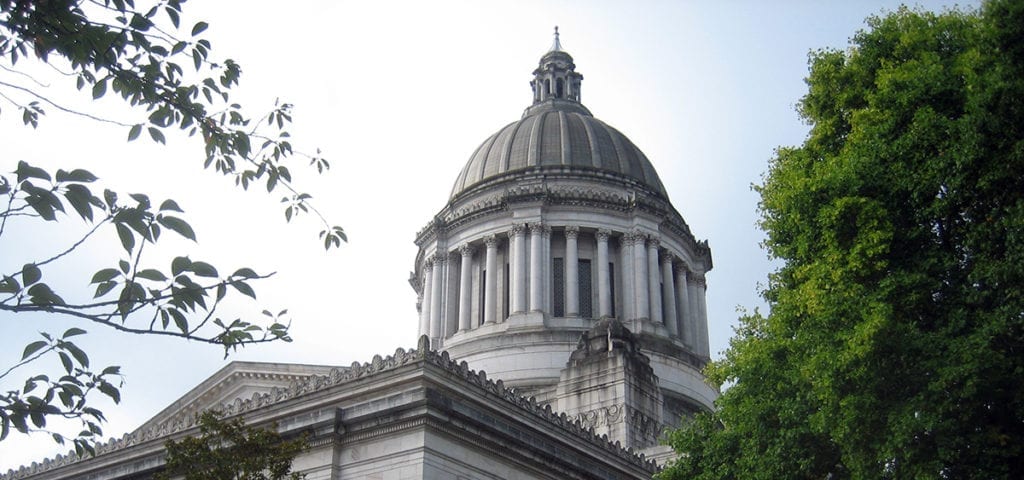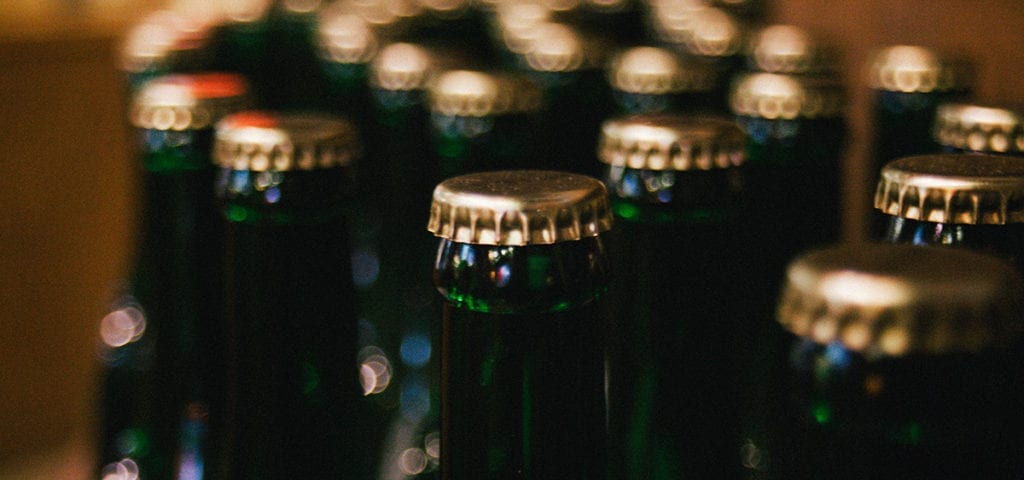Dr. Jon Cachat is the Director of Laboratory Science & Undergraduate Research at Hocking College — the first institute of higher education in Ohio to satisfy the state’s medical cannabis testing lab needs.
In the latest episode of the Ganjapreneur.com Podcast, Dr. Cachat is welcomed back to the show by our host TG Branfalt to discuss the new and rigorous academic program. In this interview, Dr. Cachat describes the wide variety of students who are drawn to the program, how he has honed the curriculum to focus on more than just the chemistry of testing cannabis products, and his perception of how higher education institutions have changed their tune in recent years towards the rapidly growing cannabis industry.
You can tune in to the interview via the player below, or scroll further down to read a full transcript!
Listen to the podcast:
Read the transcript:
Commercial: This episode of The Ganjapreneur Podcast is made possible by 420 friendly service providers in the Ganjapreneur business directory. If you need professional help with your business, from accounting, to legal services, to consulting, marketing, payment processing, or insurance, visit Ganjapreneur.com/businesses to find service providers who specialize in helping cannabis entrepreneurs like you. Visit the Ganjapreneur business directory today at Ganjapreneur.com/businesses.
TG Branfalt: Hey there. I’m your host, TG Branfalt, and you’re listening to the Ganjapreneur.com podcast where we try to bring you actionable information and normalize cannabis through the stories of Ganjapreneurs activists and industry stakeholders. Today, I’m joined by Dr. Jon Cachat. He’s the director of laboratory science in undergraduate research at Hocking College. He’s the first two-time guest on the Ganjapreneur.com podcast.
He was instrumental in setting up the college’s program, which has a license to test cannabis under the Ohio medical cannabis program, and help develop the curriculum for a new associate’s degree program at Hocking College in laboratory sciences that will encompass three specialized majors including cannabis lab technician. It’s a mouthful, man. You have a lot going on. How are you?
Jon Cachat: Good. Good, TG. Pleasure to be back, man. I didn’t realize that I was the first double time guest. I feel like I should be getting a green jacket and a cigar or something like that.
TG Branfalt: It’s in the mail. At least, the cigar is. So, as we’ve said, you’ve been on the show before, but for those of you who didn’t listen to that episode, just tell us a bit about your background, man.
Jon Cachat: Yeah. So, I have a PhD in neuroscience. During graduate school, I had a DEA license to obtain and research schedule 1-4 drugs. While I was in Northern California, doing my postdoc at UC Davis, it was about the time that California was transitioning from a collective medical cannabis program to a business license medical program.
And so, I was pretty well involved in the politics and the formation of those political regulations, became involved with a group out there doing cultivation research, looking at making indoor cultivation a little bit more efficient and cost effective than what it was and still is at the time, but also spent a lot of time in politics, and being an Ohioan, I was very closely following the development of the Ohio program, and eventually found myself back in Ohio with a little bit less of a greenhorn, and able to get involved.
TG Branfalt: So, when you were one of the first guests on the podcast, you were working in the private sector, working on a more cultivator face project that you had mentioned. What led you to make the switch to education focus?
Jon Cachat: You know, really, when I got back to Ohio, the headlines at that point said, “No major public institutes of higher education signaling interest in becoming a testing lab.” HP 523, the legislation that kicked off the Ohio Medical Marijuana Control Program, mandated that, for the first year, testing was to be done at an institute of higher education, a public institute.
I had experience in the cannabis industry, I had a knowledge and just passion for cannabis and cannabis culture, and also happened to have a PHD in neuroscience. So really, no universities had decided to step up. I was someone who was qualified to take charge of a testing lab. I knew Ohio State wasn’t gonna do it. I knew the University Of Cincinnati wasn’t gonna do it.
My alma mater, as a private liberal arts college, they weren’t even eligible. And so really, it was a bit of a traveling roadshow to different community colleges, starting up north and eventually landing down here at Hocking to say, “Look. There are no testing labs. The future of the program is unknown and in jeopardy at this point. Would you be interested in applying to be a testing lab?”
Hocking was really quickly able to get the provost and the president together, and I’ll never forget what the president said after I had sort of given the spiel. She looked down, and then looked up at everybody in the room and basically said, “Look. It doesn’t really matter what each of us personally think about the use of cannabis in the medicinal way, the state of Ohio has set a mandate that public institutes of higher education need to perform independent third party testings. We should at least give it a shot.”
So from there basically, I was able to develop the application, get it turned in in time, and we are here today.
TG Branfalt: That’s really interesting that not all colleges were qualified to enter the program. What were some of the challenges for you personally in helping to create the new degree program specifically for cannabis lab technicians, and what’s in that curriculum?
Jon Cachat: Yeah. Yeah, that’s a great question. You know, really, in terms of what other universities were saying, so this idea of, “Should we participate in the cannabis industry?” Two years ago … I’m very familiar with institutes of higher education. I’ve been in several across the country for most of my adult life.
There’s a term called analysis paralysis, and so there was a perceived risk that if we touched this plant, the federal government may take away all of our federal research money, they may cut our ability to offer financial aid to students, and the emphasis on there is perceived risk because that’s never happened.
But just the potential of that being on the table would lead to so much paralysis and analyzing all the different options that most universities just walk away. So now, in terms of the course work, yeah, it was actually pretty challenging if you go from it of the angle that a course like this in cannabis has never existed before, and I should say curriculum rather than a course.
You know, there are a number of universities, Canadian, Colorado, some in California now, some even in Ohio. For example, The Ohio State University law school has one course where they will review cannabis in its relation to tax law, but what we developed here at Hocking, what I developed here at Hocking, is actually a full two year program curriculum where, at the end, students will walk away with an associate’s degree in lab sciences with a major in cannabis lab technician.
So, what would that look like? Well obviously, they need experience on the analytical chemistry portion of it, and we make no qualms about it. While cannabis is involved in this program, and we will be analyzing cannabis, it’s a very hardcore analytical chemistry program. We’re learning how to run high pressure liquid chromatography. We’re learning how to run inductively coupled mass spectrometers to test for heavy metals.
So obviously, you need that type of course work which consists of both classroom time, to get the theory behind the instrumentation, but then also lab time, hands-on time with the exact instruments that are being used in our commercial cannabis lab, just in an educational lab. And while we’re not able to take, obviously, cannabis products that are in the products supply line over to the educational lab, we are able to use standards, and extracts, because it’s very, very important for the students to look at the same chromatography peaks, the same sort of patterns over, and over, and over again.
I mean, a particular … You know, I got a question. “What’s the test gonna be like?” In the lab, we’ll have, let’s say, 10 samples, and we want to analyze the cannabinoid content of what’s in these 10 liquid samples. Unbeknownst to the students, I’ve spiked three of them with aspirin and caffeine. I’ll know who’s paying attention, I’ll know who’s gonna make a great cannabis lab tech. When they call me over and say, “This peak shouldn’t be here. I don’t know what this peak is.”, and it’s like, “Okay. Now, you’re finally getting it. You got it.”
So, there’s the chemistry angle of the curriculum for this major. Beyond that, I wanted to make these students prepared just to work in the cannabis industry in general, and so we’re gonna provide an overview of humans’ history with this plant. I call it “Cannabis Humans, and Our Forgotten History,” because we are lucky enough to have the Cannabis Museum, Cannabismuseum.com, down the street for us. It’s the largest private collection of old pharmacy mixing jars from compounding pharmacies. They have things that go back as far as 1887, hand-written prescriptions from doctors in Texas for two grams of cannabis indica to help with insomnia.
So, where the cannabis industry has come from, what’s our relationship with this plant in humanity’s perspective, and where are we going? And then, the last important component that is important for a lab tech, yes, but important for anybody in the cannabis industry in general, is understanding the economics of being a cultivator.
So, what’s their business model look like? What are the inputs that go into growing plants successfully, of high quality, repeatedly, in our new modern regulated system? What does a grower stay up at night worrying about? What are microclimates, and how do microclimates lead to situations where eventually, downstream, they’re gonna end up failing one of the tests and have to destroy that whole crop?
The same thing goes for processors. What’s their business model? What are they starting with as raw material? What are the steps that goes through to get down to a medicinal quality oil? And then, what are their goals in terms of using that oil and turning it into different products?
Because ultimately, as a lab tech, you’re going out to these operations and you’re spending time with the grower, who has spent the last couple months, certainly the last three or four weeks of flowering, with these plants every day, and has an intimate relationship with them, and he’s talking to you about his concerns.
He’s asking you questions about, “I might’ve seen a little PM over here. What do you think?” And so, it’s important for the lab’s tech, and the students that are gonna be coming out of this program, to have an appreciation and be able to put themselves in someone else’s shoes for a day to help them achieve their goals while also being very well versed in the regulations and the analytical chemistry involved in cannabis testing.
TG Branfalt: I mean, it’s no surprise. I know you are really a sort of deep thinker and that you’ve put a lot of thought into this. You know, you’ve spent most of your adult life in higher education. I have a master’s degree. I currently teach at a New York State school, university, and I can tell you that, during my interview, during my first semester, I didn’t really mention much my relationship to the cannabis industry as a journalist, as someone who has covered it for a long time, because that stigma still exists.
Where I’m at, upstate New York, it’s a little more conservative. How important do you think it is that a traditional institute of higher education has this program focused on the cannabis industry?
Jon Cachat: You know, higher education is in the business of preparing students for a career, for their job, and so, there’s clearly a demand in both … across all ages, both young and old students, to try to find an avenue into the cannabis industry, and even up to today really, the best way to get experience in the cannabis industry is break the law left and right and put you, and your family, and your finances, and your children, and everything, at such a risk that it really becomes difficult for someone who …
Let’s say they are retiring from their job, and they were great in the manufacturing floor, but they know that the cannabis labs are driving around the state every day, and they want to get involved, but he doesn’t know much about cannabis. It is really the mission of traditional institutes of higher education to provide pathways to prosperity for these individuals. I mean, down here in southern Ohio is a great example.
You know, there’s nothing wrong with being a car mechanic, and if you’re a good car mechanic, I love you, and it’s an honorable profession, but you could now, conceivably, have a career in biomedical research, performing graduate level analytical chemistry after a two year program and a lot of hands-on experience at this program at Hocking College.
And I will say this, too, just to wrap. After Hocking College sort of plowed the way through, I get about an email a week from different institutes of higher education, Kentucky, West Virginia, up in Canada, where they’re saying, “We have a medical program coming online. We saw what you guys did, and of course, our students are very interested in preparing themselves for this industry. Can you tell us how you did it? Can you tell us how cannabis and higher education can exist together in a way where there’s mutual benefits all around?”
TG Branfalt: So, you’ve mentioned, a couple of times, the students. Tell me about the students that you’re seeing in this program. Are they mostly traditional sort of fresh out of high school types, or are they your non-traditional maybe part-time adult learners?
Jon Cachat: It’s a good question, and the interest has been across the board. Broadly speaking, there are high school graduates who are going off to college for the first time and want to jump on this as soon as they can. The other half are individuals with degrees already. Maybe they already have a bachelor of science, maybe they already have … they’re a certified nurse practitioner, or they’re a medical lab technician. They already have an accredited degree in an advanced field of study, but they want to come back. They want to get the cannabis experience so they can get lined up for a job in the cannabis space.
And so, it’s been real interesting for me to figure out how I can take a program, and these students who are coming in at vastly different levels of knowledge and experience, and get them through the end result, which really, for me, is positive feedback from employers down the road that the people coming out of this program are not only well prepared, but they are fantastic, and they’ve been able to help our lab over several hurdles or small fires that pop up daily.
Generally … I mean, we would get emails from students in Texas. I’ve gotten emails from students in Washington State. I really did have a 68 year old man call me who said he hasn’t saved enough for retirement and he wants to know how to get into the program.
TG Branfalt: No way.
Jon Cachat: And so, interest is coming all over … across the board, all over the nation. Really, what I try to do right off the bat, is to make sure that they’re clear that this is an analytical chemistry program in which cannabis is the primary target analyte. There will be no organoleptic testing by any means, organoleptic meaning of course testing a product with your five senses.
TG Branfalt: So, you mentioned earlier, at the start, about these other sort of canna-centric schools that are in California, and Colorado, and so forth. Why would you recommend that students enroll in a program like yours or your program instead of other cannabis-focused institutions? And are there benefits to those other less traditional schools?
Jon Cachat: Of course. Yes, yes. So, there are several entities, one here in Ohio, which I sit on the advisory board of. The Cleveland School of Cannabis, for example, they offer certificate programs after … It’s a short program, I think maybe over the course of six to eight weeks, and then you can end up getting a certificate from them in cultivation, or you could end up getting a certificate from them in processing, or working in the dispensary.
Those schools are, first off, responding to a demand of people who want to be educated to work in the industry, but you’ll notice, the traditional institutes of higher education, we are training people to be cannabis lab technicians or to work in the analytical chemistry angle of it.
You could work at a cultivator, or a processor who has this instrumentation on site, but I think it’s gonna be some time before we see a traditional academic institution actually teaching cannabis cultivation, or actually teaching how to extract with butane or some other hydrocarbon, extract that down into an oil, and then make that oil into products.
Those are, I think, a little bit too much. I don’t know what the legal term would be, but maybe aiding and abetting federal rule breaking. But they’re very comfortable with the analytical chemistry part of it. So, you can … This is an accredited degree program here at Hocking. You will walk away with an associate’s degree in cannabis lab technician. That’s a two-year program.
My job is to make sure that that program is rigorous enough so when you apply to be a cannabis lab tech, and they are saying that, “We want a bachelor’s, or master’s, or PHD”, you can say, “Well, I’ve been in a cannabis lab for a year and a half. I know when the ICP-MS goes down and the vent’s messed up that it’s really the drainpipe. It’s not really the vent.” That knowledge is invaluable.
But if you know for sure that you want to be on the cultivation side of things, dealing with the plants, our program will prepare you to have those conversations, but you’re not getting the hands-on nitty gritty details of how that process works. So I hope I made that clear, but there’s different avenues in which educational entities are targeting things now, and chemistry is the … I don’t want to say the safest lane, but it’s one of the lanes that requires the finesse, and experience, and educational philosophy that you would find in a traditional two or four year education beyond that of a certificate program.
TG Branfalt: So, I want to ask you sort of a broad question here. You went around trying to find places to help set up a degree program in Ohio. You ultimately landed on one. You mentioned that we’re very far away from seeing cultivation for probably legal reasons as opposed to cultural reasons.
Jon Cachat: Right.
TG Branfalt: In your experience, do you think that there’s still a cannabias in higher education, that it’s something that we don’t want to talk about with students, that department chairs don’t talk about sort of the culture aspect of it with their faculty, and so on and so forth?
Jon Cachat: Yeah. You know, it’s interesting. I don’t know if I would call it a cannabias. I would say more like cannaphobic. They’re afraid. They’re afraid to touch it. I mean, for so long, it has been a … Even at the schools, an issue that law enforcement handles, not the provost and dean of academic affairs. I don’t think this is unique to higher education, but there is just, in large, people who have preconceived notions of what cannabis is, and what it does, and the people who use it, and who they are, and how they behave.
But even since last we spoke, you could see that sort of getting whittled away day by day, and really, it’s conversation by conversation. I tell everybody, “If you’re talking to someone, call it cannabis. Don’t call it marijuana. Marijuana is some made up term. We’re actually using its scientific name.”
When I first started here at the school, down here in southern Ohio, there was a lot of … Once you get past the sort of canna-stoner jokes, and then you start getting into the real science of it, they’re like, “Oh, wait. This kid’s not playing around. He’s actually serious about this.” Then there’s also sort of just responding to, “Oh, well, I know this medical is just a Trojan horse in order to get to adult use, and no one’s really benefiting medically.”
For that reason, and that reason alone, I purchased several copies of the most recent compendium of the medical uses of cannabis, about a 600 page book. I mean, it’s like a bible. So, whenever I get that question, I can just throw that book at them and say, “Come back to me after you’ve read it.”
TG Branfalt: And injure them in the process. With Hocking, are you guys partnering with private companies as part of your programs?
Jon Cachat: Yeah, definitely. So I mean, the one that comes to mind first is Shimadzu. So, all of our analytical instrumentation was provided by Shimadzu. They have been a wonderful partner to have, especially in helping us get the lab up and running quickly. They were one of the first major analytical chemistry equipment manufacturers to service and get into cannabis testing labs, so with that comes a lot of experience in tuning the LC triple quad to detect myclobutanil and cynipidae, and 20 other pesticides along with mycotoxins and the fungus.
And so, we were really able to benefit from the experience that they’ve gotten in setting up other cannabis labs to ensure that the signal to noise ratios, and the recovery percentages that we’re getting, were right on track right off the bat right away, and if we do have something that is slightly off, that we’re able to call one of their techs directly, because we are a Shimadzu partner analytical lab with them, and so they’re very much invested in our success as well.
Beyond that, there are medical device manufacturers down here in southeast Ohio who are interested in production line biochemists. They make things like pregnancy tests and other medical testing kits, so there are definitely, outside of the cannabis industry, companies who are looking for staff and need a lab sciences coursework for the education.
We’re also partnering with groups like PathogenDx, and Medicinal Genomics. These companies make genetic based, PCR based, microbial tests, so in our tests that we’re testing for mold. Right now, in order to test for mold, we have to swab the sample onto a cell culture plate and put it in an incubator for 24 hours, and then check after 48, and give it an enrichment, and put it in for another 48. It could take up to 90 hours plus, and it’s really the biggest bottleneck in the cannabis analytical lab pipeline.
By using the genetic methods such as those put out by Pathogen and Medicinal, we’re able to cut that time down to about 6 hours, but we are also able to genetically identify the presence of a mold or a fungus, rather than just looking at the cell count and saying, “Well, there’s blue growth here with a red air bubble, and that indicates 100 colonies of enterobacteria.”
You know, the bacterias can be a lot different, and depending on what actually is there, or if the operation is using some sort of composting teas, which is very popular outdoor and in this sort of black market transition over. So, we’re working with those private kit providers with the DNA methods to ensure that those results that come out match those on the plate, and it’s some RND testing for them, but then also to go to the state and say, “Look, these are valid methods for detecting microbial growth, if not more accurate than what the plates are, and it would be worth everybody’s time for us to switch over.”
So, yeah. There are a number of private-public partnerships that we have going on. The lab, of course, itself is owned entirely by the school. The revenue streams that come in from the lab are then being able to go back into the general fund and support any number, the whole catalog, of programs here at the college. But the manufacturers know, especially that we have the educational component, people like to purchase the machines that they were trained on, and so getting them in front of the students is of equal value to everyone, not to mention the students who are being trained on some of the latest and greatest analytical instrumentation.
TG Branfalt: So, a lot of colleges throughout the country are facing sort of budget cuts, budget crises, and so in order to set up one of these programs … I mean, obviously, it costs some money. How could other interested educators sort of create these partnerships? What was that process like? Did they reach out to you? Did you reach out to them?
Jon Cachat: It was mostly a lot of outreach on my end. Having spent so much time in academia, particularly in grad school, for example. When we were giving zebrafish LSD and trying to discern their behavior, whether it was an anxiety-like state or a more sort of calm state, one of the ways that I developed to do that was to use USB webcameras and then plug those videos into animal behavioral tracking software, and so, at that point, no one was doing that with zebrafish.
The software was designed to be working with mice and rodents, and so I have a lot of experience working on software, and adapting software into the laboratory setting in new ways, and so I knew what it was like to contact those private companies as an academic institution, and discuss to them what we have going on and if they would like to be involved.
For other universities, they should also be intimately familiar with that. There are some benefits, particularly when it comes to negotiating pricing, and service contracts, and all of that that the manufacturers and private companies are familiar with the benefits and the value of working very closely with higher education.
The other institutions that have called me and asked how they could get their foot in the door, really, it’s starting to get familiar with your regulations. What does the testing lab actually look like in your state? I can’t tell you. I could tell you all about Ohio, California, but not Kentucky. I didn’t even know Kentucky had a program.
So, getting involved, reading those regulations, attending any and all of the public meetings that the governments is hosting here in Ohio, they have a monthly meeting in Columbus where the Medical Marijuana Advisory Board meets. You know, it probably wouldn’t be a bad idea as well to attend local meetings, your local NORML chapter, or if there’s an ASA program at your school, or Students for Sensible Drug Policy, that is where you’re gonna start finding champions, those who understand cannabis and cannabis culture, but also have a technical enough background or experience to where you want to start recruiting those people and getting them on your side.
I think Dr. Young often says that, when asked how this all came about at Hocking, she looked at me and said, “JC was here, and he knew what he was doing.” Whether that’s true or not, we’ve made it this far. But really, starting early, getting out there, especially with departments of higher eds, if you’re planning on doing a curriculum. You surely have a relationship with them, but starting to float the idea of some cannabis curriculum that might be being submitted, you’re lucky that you have Hocking to look to to say, “Well, this is how they did it.” But it really is a lot of discussions and not putting things off to the last minute, is what is eventually gonna help you in the marathon. It’s not a race.
TG Branfalt: So, you touched on policy a minute ago. Let’s talk a little bit about midwest policy. Michigan legalized cannabis for adult use. Illinois governor has said he wanted to actually beat Michigan to roll out their own program. Ohio’s in the midwest obviously. How long, in your opinion, until officials in Ohio seriously take a lot at recreational use considering what’s going on around them?
Jon Cachat: Yeah, yeah. That’s very interesting. I think actually Pennsylvania announced some intent for adult use laws here pretty quickly. I think, and I think this is very understandably so, the regulators in Ohio, especially since we just had a new governor come into place, and the delays that weren’t unique to Ohio, but we’re basically at a point now where the entire program has actually only been up and running, with products on the shelves, for three or four weeks.
We finally got all the pieces connected, and we have product moving from cultivators to dispensary shelves, and I know that there are considerations and amendments just to improve the current laws that we have on the book. I know that, at least in the new governor’s office, there is sort of an acceptance of the medical laws, but very little interest in expanding those laws over to adult use, but what I will say, I know several groups, and I’m pretty sure there’s one out of Athens, that has adult use ballot language ready to get on the ballot in 2020, and if history is any judge, the thing that will get Ohio legislators moving very quickly is a ballot initiative that the people put forth.
It’s the same thing that happened with our medical laws here. We had the heralded and infamous monopoly bill for the medical laws here in Ohio. That got voted down quickly, and then all of the sudden, the Ohio legislature passed a medical cannabis program at lightning speed, faster than any states has ever done it before.
So, it’ll be interesting to see how everything falls out. You know, it’s also interesting to consider the fact now that we have several multimillion dollar businesses that have spent a lot of money, and a lot of time, and a lot of effort to be operational in the medical market, and are those business interests not interested in adult use? Or, are they interested in adult use? I think, and understandably so, that in the legislature, we’re not gonna see any movement on adult use unless the people of Ohio force the issue, and ultimately, I think it’s gonna come, but I do think that I would like to see the medical program here in Ohio …
Maybe 30% of the production line and production capacity is actually moving right now. A year from now, by the time we’re in the summer, we’ll see a lot more product moving through the supply chain, we’ll see prices come down, and frankly, I hope we see the trend where the average age of patients at dispensaries is 50+, and so those people really stand to benefit a lot. Of course, the appetite’s there. I don’t know if the political will will be there until the people force the issue. I would certainly say it’s not out of the question, but it’s hard to predict at this point.
TG Branfalt: So, what advice do you have for potential students seeking to enter this space? And what about educators?
Jon Cachat: Yeah, that’s interesting. That’s interesting. Well, like I said at the beginning, the advice to potential students is, “Yes. This is a cannabis program, but more than that, it is a very rigorous analytical chemistry program, and so if you don’t have the innate curiosity in how things work, or sort of an engineering tinkering mind, or math isn’t your thing, or some level of physics just drives you crazy, you’re probably not gonna make it through the entire program.”
I learned, at other universities, a lot of freshman will come in their first year and say they want a major in psychology. It’s one of the most popular freshman choices, first year choices. In order to handle that, psychology 101 is a pretty difficult course, by design, to make sure that the people didn’t just willy nilly pick psychology, but are willing to put in the work to achieve what is a relatively difficult degree.
So, my advice to students is that be aware that this is a rigorous program, and it’s going to remain that way because you need those skills and that experience in order to get a position in this industry. The other thing I guess I would say is that, for educators, your goal is to prepare students for jobs in the workforce.
So, one of the things I did mention earlier, if you do have legal cannabis operations operating, it would serve you very well to ask if you could set up a meeting with them onsite. Go through their processes, make those connections with where the potential employers are in your state, and understand what they want from a student coming out and looking for a job at their facility, for example.
The last thing I’ll leave you with, too, and I do this with all of my interviews for the lab, or anyone that calls me from a school looking to set up an educational program like this. The very first question is sort of like when the stewardess goes around and checks the exit doors, and you gotta give them a visual nod and confirmation that you’re willing to open the door should you need to.
You just say flatly, “We’re all gonna be felons. Are you prepared to break federal law?”, and you say yes, you move on, and you don’t discuss it again until … Hopefully, you never need to, but it’s just something that you have to accept, live with, and hopefully your support for state’s rights, and the ability for the states to regulate the system, is good enough.
TG Branfalt: Is that when most people hang up on you?
Jon Cachat: It’s where most people sort of just stare at me like, “Wait a second. Is he serious, or is he joking around?”, and this is very much serious. It’s not … I guess it’s not something to be proud of in one way, but in another way, the cannabis industry has always been a group of outlaws, and while we’re legal now, we’re still breaking a few laws just by technicality.
But hopefully, the more people that get in, the more students that are educated in this, the more and more we’ll push back against that cannabias or cannaphobia, and get to a point where everything should be.
TG Branfalt: So, where can people find out more about you, your program? How can they get in touch with you if they’re seeking answers to their educational questions?
Jon Cachat: So, you can reach the lab at lab@Hocking.edu. Hocking is spelled H-O-C-K-I-N-G. I will say this. Given the interest in the program, my inbox is just dead on arrival, so for anybody who has maybe already emailed me, or is hoping to learn more about the program, please don’t take my lack of response personally at all, it’s just that this is a very popular program and there’s a lot of students that are interested.
I’m trying to pull up the laboratory sciences. Yeah, so if you go to Hocking.edu/laboratory-sciences, that’s where you can see the full curriculum for the program, a little bit more about the chemical and medical laboratory programs, and reach out to admissions or enrollment to learn about how you can get started.
The first class is actually starting March 10th, and then lastly, you can find us on social media @Hockinglabsci. So, H-O-C-K-I-N-G, L-A-B, S-C-I, and that’s on Twitter and Instagram.
TG Branfalt: One more quick question. Do you guys already have a wait list?
Jon Cachat: We have not set up a wait list. There is a cap on the lecture classes at 100. There’s a cap on the laboratory classes at 25. My mailing list is currently at 207, and I’m pretty sure we’ve got about 30 enrolled thus far. March 10th is the first Intro to Lab Sciences, so that would be for students both interested in cannabis chemical and medical lab technicians.
The cannabis specific courses, the first year for that will be in the Fall of 2019, and then for those of you that have a bachelor’s degree or other sort of advanced training, if your credits transfer, you can start in the second year of courses, which will be going in Fall of 2020.
TG Branfalt: Well, Dr. John Cachat, man, it’s really great to have you back. Congratulations on all of your success with this program and just in the industry in general. It’s always great to have a chat with you, and I know that you’re super busy, so it’s a good thing that I have your cell phone number, because I wouldn’t have been able to get in contact with you had I sent you an email.
Jon Cachat: Of course. Of course, TG. Always a pleasure to chat, and I guess I owe you a beer this time.
TG Branfalt: Next time you come up to the Adirondacks. You can find more episodes of The Ganjapreneur.com Podcast in the podcast section of Ganjapreneur.com and in the Apple iTunes store. On the Ganjapreneur.com website, you will find the latest cannabis news and cannabis jobs updated daily, along with transcripts of this podcast. You can also download the Ganjapreneur.com app on iTunes and Google Play. This episode was engineered by TRIM Media House. I’ve been your host, TG Branfalt.
